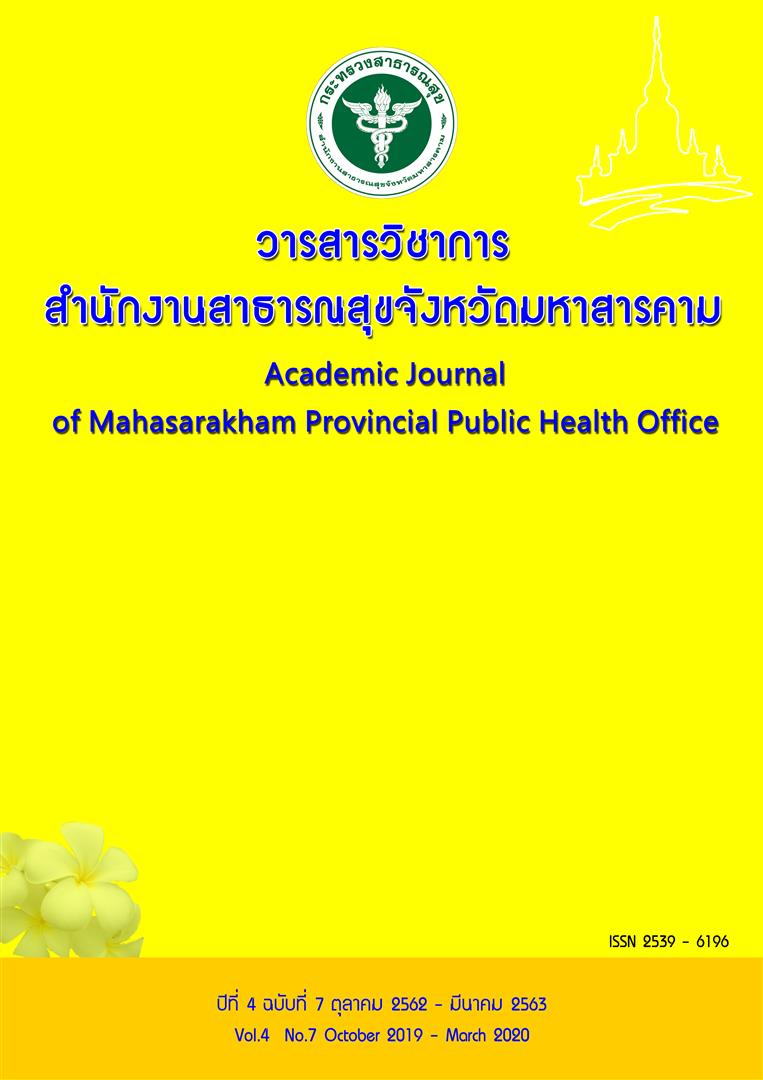การพยาบาลผู้ป่วยโรคไตเรื้อรังระยะสุดท้ายที่ได้รับการล้างไตทางช่องท้องแบบต่อเนื่องที่มี การติดเชื้อของเยื่อบุช่องท้อง : กรณีศึกษา 2 ราย Nursing Care for Patients with End Stage Renal Disease having Peritonitis form Continuous Ambulatory Peritoneal Dialysis : a Study of Two Case
Abstract
Abstract
Objective : To describe the nursing care for patients with end-stage renal disease (ESRD) having peritonitis from continuous ambulatory peritoneal dialysis (CAPD).
Methods : This comparative study was conducted by using the data of two patients with end-stage renal disease having peritonitis from CAPD admitted in Khon kaen Hospital between September and November 2016. The data of this study were collected from patient medical records, interviewing patients and their relatives, and observations. Besides, this study was analyzed and presented by comparison between cases in health patterns, pathology, signs and symptoms, peritonitis’s treatments, nursing diagnosis, and nursing plans during admitted and discharge.
Results : The results showed that both patients have the same problem that was a fungal infection, and it quickly spreads to the peritoneum. Moreover, fungal infection made the first patient had a fever, severe stomach pain, nausea and vomiting, and unclear of peritoneal dialysis solution. However, the second case did not show those symptoms because the fungi did not spread to the peritoneum, just saw the fungi sticking to a transfer tube and it made the peritoneal dialysis solution was not cleared and flown. After that, both patients have been changed treatment plans by adding antifungal medicines and temporary hemodialysis. However, the severity of infection of each patient depends on their conditions, including age, underlying of disease, delaying of treatment, type of germs, signs and symptoms, and competency of caregiver regarding practice and skill of CAPD
Conclusion : To care for patients of ESRD having CAPD, nurses have to have essential nursing competencies, including nursing practice, counseling, teaching, and communicating to patients and their families, management, coordinating, and continuing care. It also included the competencies and skills of accessing the causes of peritonitis and reviewing the guidelines of changing peritoneal solution. These nursing competencies will be helpful in preventing recurrent infection, reduce mortality rate, and enhance the quality of life
Keywords: End-Stage Renal Disease, Continuous Ambulatory Peritoneal Dialysis (CAPD), Peritonitis


